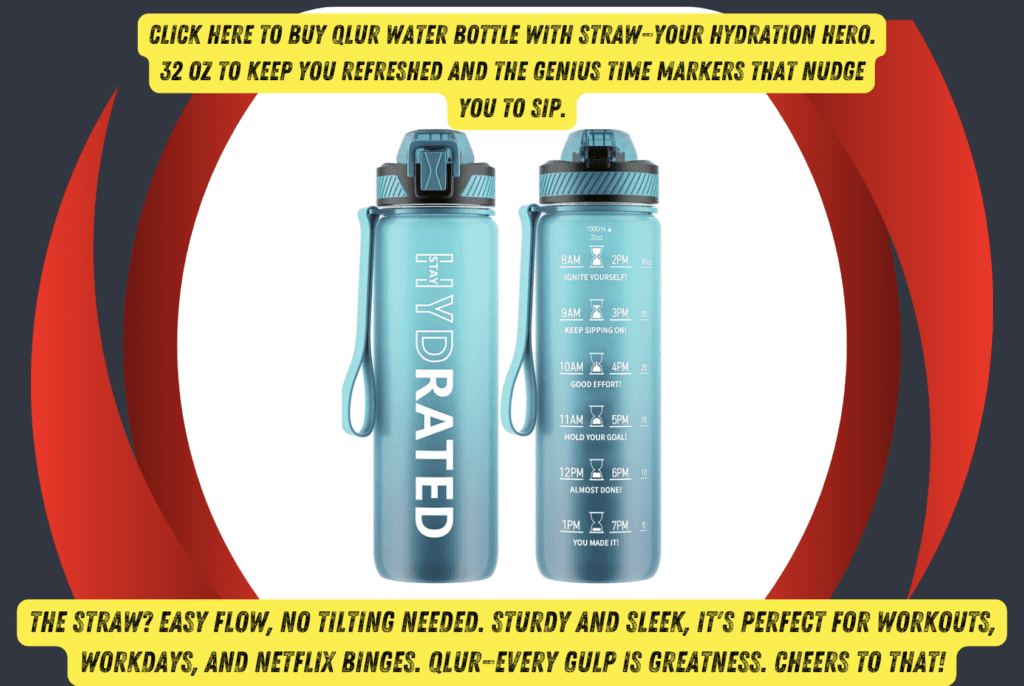How Drinking More Water Can Help You Lose Weight Faster
Discover how increasing your water intake can boost your metabolism, curb your appetite, and help you shed pounds more efficiently in this comprehensive guide.
In the pantheon of weight loss strategies, drinking more water might seem like a simple, even mundane tactic. Yet, beneath its unassuming surface lies a powerful ally in the battle against excess pounds. This comprehensive guide explores how increasing your water intake can boost your metabolism, curb your appetite, and ultimately help you shed pounds more efficiently.
The Science of Hydration and Weight Loss
Water is fundamental to virtually every physiological process in the human body. Here’s how it plays a pivotal role in weight management:
- Metabolism Booster: Drinking water can temporarily boost your metabolic rate. A study published in the Journal of Clinical Endocrinology & Metabolism found that drinking 500 ml of water increased metabolic rate by 30% for about an hour.
- Appetite Control: Water acts as a natural appetite suppressant. Consuming it before meals can help reduce overall calorie intake. A study in the Journal of the American Dietetic Association found that participants who drank water before meals consumed 75 fewer calories per meal.
- Caloric Substitution: Replacing sugary beverages with water reduces overall calorie intake. A Harvard study highlighted that people who substituted at least one sugary drink with water cut their daily caloric intake significantly.
Unexpected Anecdote: The Adventurers’ Elixir
Consider the story of explorers traversing the arid expanse of the Sahara Desert. Their reliance on water was not just for survival but also for maintaining energy and focus. Modern adventurers, like those embarking on ultramarathons, often cite hydration as a key factor in their performance and endurance.
Practical Benefits of Increased Water Intake
Beyond the scientific underpinnings, practical benefits abound when you prioritize hydration:
- Enhanced Digestion: Water aids in the digestion and absorption of nutrients, ensuring your body gets the most from the food you consume.
- Reduced Bloating: Adequate water consumption helps maintain proper kidney function, reducing bloating and water retention.
- Improved Workout Performance: Staying hydrated improves physical performance, allowing for more effective workouts, which are crucial for weight loss.
Hydration Strategies
Implementing hydration into your daily routine requires mindful habits:
- Set a Schedule: Drink a glass of water upon waking, before each meal, and before bed. This ensures consistent hydration throughout the day.
- Flavor It Up: If plain water bores you, infuse it with natural flavors like lemon, cucumber, or mint to make it more appealing.
- Use Technology: Leverage apps and smart bottles that remind you to drink water regularly.
- Carry a Bottle: Always have a water bottle with you, making it easy to sip throughout the day.
Personal Observation: The Office Water Cooler Phenomenon
The humble office water cooler has long been a gathering place for not just hydration, but social interaction. Observing colleagues making frequent trips can serve as a gentle reminder to stay hydrated, creating a culture of wellness within the workspace.
Frequently Asked Questions
Q1: How much water should I drink daily for weight loss?
A good rule of thumb is to aim for half your body weight in ounces. For instance, if you weigh 150 pounds, aim to drink 75 ounces of water daily.
Q2: Can I drink other beverages to stay hydrated?
While other beverages contribute to hydration, water is the best choice as it is calorie-free and helps flush out toxins.
Q3: Can drinking too much water be harmful?
Yes, excessive water intake can lead to water intoxication or hyponatremia, which dilutes sodium levels in the blood. Stick to recommended amounts.
Q4: Does the temperature of water matter for weight loss?
Cold water may slightly increase calorie burning as the body works to warm it up, but the effect is minimal. The most important factor is consistent hydration.
Q5: Are there signs that I’m not drinking enough water?
Common signs of dehydration include dark urine, dry skin, headaches, and fatigue. Ensuring regular water intake can help prevent these symptoms.
Actionable Tips
- Track Your Intake: Use a journal or app to monitor daily water consumption.
- Start Your Day Right: Begin each day with a glass of water to kickstart your metabolism.
- Eat Water-Rich Foods: Incorporate fruits and vegetables like cucumbers, strawberries, and watermelon, which have high water content.
- Listen to Your Body: Drink when you’re thirsty, and increase intake during hot weather or intense physical activity.
- Make It a Habit: Create routines around water intake to make hydration a natural part of your day.
Hydration and Weight Loss: A Closing Thought
Water, often overlooked in the grander scheme of weight loss strategies, holds a quiet yet undeniable power. By boosting metabolism, curbing appetite, and enhancing overall bodily function, it stands as a versatile and accessible tool in the journey toward better health. So next time you reach for a glass of water, remember that you’re not just quenching your thirst—you’re taking a significant step towards achieving your weight loss goals. Embrace this simple yet profound habit, and let the ripple effects transform your wellness journey.

